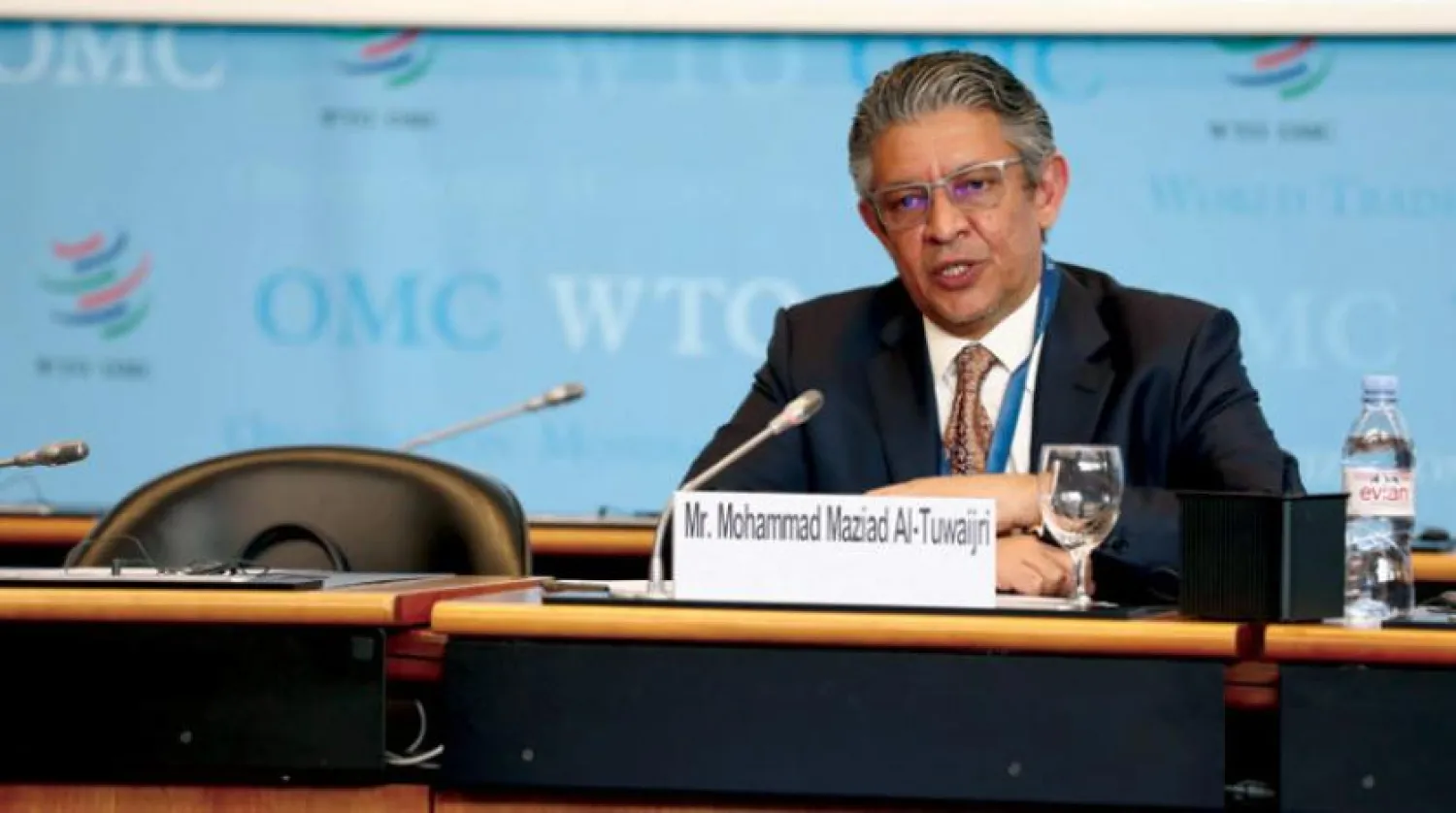The working program of Saudi Arabia’s candidate to the post of Director-General of the World Trade Organization (WTO) aims at redeveloping the international body’s mechanisms of the work method, said Saudi officials on Saturday.
Advisor at the Royal Court Mohammed bin Mazyad al-Tuwaijiri arrived in Geneva last week to take part in the meetings of the WTO general council, and he presented his vision and working program before the representatives of the WTO member states and answered their questions on Friday.
Governor of KSA’s General Authority for Foreign Trade Abdulrahman al-Harbi said Tuwaijiri has addressed the problems and challenges facing the organization.
“He discussed its main tasks of negotiations, dispute settlement, notifications, and transparency,” Harbi noted, indicating that these points affirm the candidate’s approach to redevelop the organization’s work mechanisms.
Commenting on the trade challenges among various countries, Harbi said the organization, with its mechanism and work methodology, lacks an analysis of root problems.
He pointed to Tuwaijiri’s call to bolster communication and political support by member states and proposal to hold the ministerial conference annually instead of every two years.
According to Harbi, this would enable progress to be made in the organization’s achievements and cooperation with other international bodies.
The Kingdom’s candidate tackled the most prominent topics in the WTO, Harbi stressed.
“These include the challenges facing developing and least developed countries, the negotiation mechanism and dispute settlement bodies, as well as the challenges caused by the imbalance in the organization's methodology of work.”
The program presented has focused on two main aspects. The first is resolving the current challenges by restructuring the organization’s work mechanism so that it can function normally. And the second is not to neglect some quick wins in some of the organization’s existing issues and negotiations.
Saudi Arabia’s Deputy Permanent Representative to the United Nations Dr. Khalid Manzalawi, for his part, said the Kingdom’s candidacy to preside the WTO comes in line with its efficiency in leading the world’s largest economies in its role as president of the G20 for 2020.
Tuwaijri holds an MBA with honors from King Saud University in business management.
He served in several important positions in the Kingdom, notably minister of economy and planning. He also served as a member of cabinet and a member of the economic and development affairs council from 2017 to 2020.
He also served as deputy minister of economy and planning, secretary-general of the financial committee at the Royal Court from 2016 to 2017. He was also vice president of the national development fun and president of the National Transformation Program. He also played a role in forming strategic partnerships in several countries.
Tuwaijri was also president of the National Privatization Program and is member of the board of Saudi Aramco and the Public Investment Fund. From 2007 to 2010, Tuwaijri was CEO of JP Morgan Saudi Arabia. He moved to HSBC, where he worked in various roles, including CEO of global banking and markets, regional head of service management, and group vice president and CEO of HSBC MENA and Turkey.









